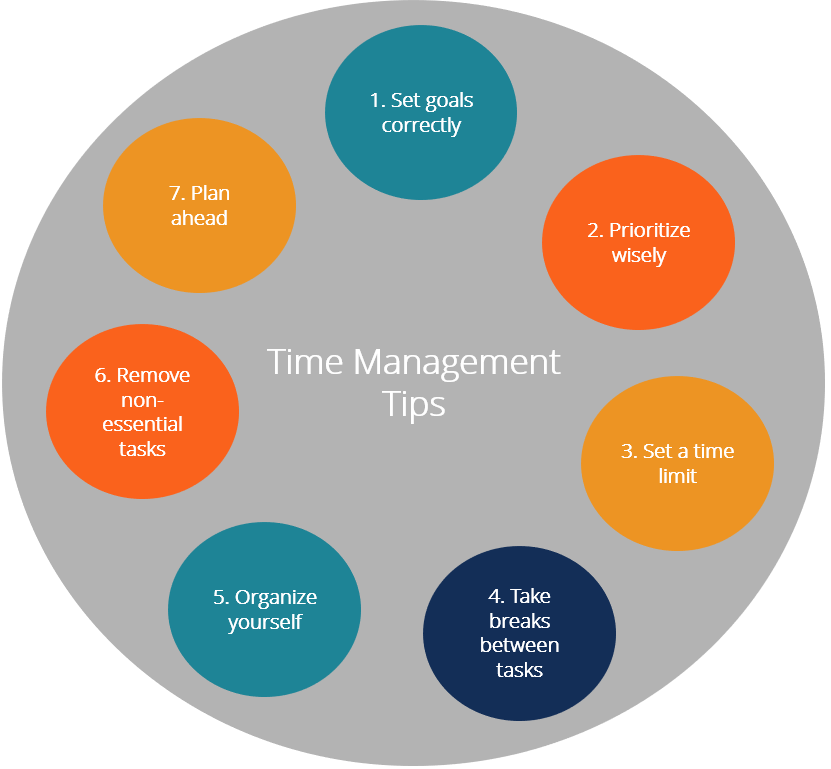Procrastination is a challenge many of us face. It’s the act of delaying or postponing tasks, even when we know they need to be completed. Procrastination can negatively affect our productivity, cause stress, and even damage our self-esteem. However, the good news is that it’s possible to overcome procrastination by implementing practical strategies to help us stay focused and motivated. Here’s how you can stop procrastinating and start getting things done.
1. Break Tasks into Smaller, Manageable Steps
One of the main reasons people procrastinate is because tasks feel overwhelming. Whether it’s a large project or a lengthy to-do list, starting can seem like a daunting task. When you don’t know where to begin, it’s easy to put it off.
How to Overcome It:
- Break down big tasks into smaller, more manageable steps. By doing so, the task becomes less intimidating, and you can tackle each step one at a time.
Example:
- If you need to write a report, break it down into tasks like “research topic,” “outline main points,” “write introduction,” and so on. Each task will feel smaller and more achievable.
Breaking tasks into smaller chunks also provides the satisfaction of completing mini-goals, which keeps you motivated.
2. Set Specific and Realistic Goals
Procrastination often occurs when we don’t have clear or realistic goals. Vague objectives like “finish project” or “study for exam” can feel overwhelming and lead to avoidance. Without a clear roadmap, it’s easy to get stuck.
How to Overcome It:
- Set specific, measurable, and realistic goals for each task. This gives you a clear target to work toward and helps you stay on track.
Example:
- Instead of saying “study for math test,” break it down to “review chapters 1–3 for 30 minutes” or “practice 10 math problems by 3 PM.”
By setting small, achievable goals, you’ll have a clear path forward and a sense of accomplishment as you complete each one.
3. Use Time Management Techniques
Time management is crucial for overcoming procrastination. If you don’t allocate specific times for tasks, it’s easy to let them slip through the cracks. By being intentional with your time, you can improve productivity and stop procrastinating.
How to Overcome It:
- Use time management techniques like the Pomodoro Technique, time blocking, or the two-minute rule. These strategies can help you stay focused and create structure in your day.
Pomodoro Technique:
- Work for 25 minutes, then take a 5-minute break. Repeat this cycle four times, followed by a longer break (15-30 minutes). The Pomodoro Technique helps you maintain focus and avoid burnout.
Time Blocking:
- Allocate specific blocks of time for specific tasks. For example, from 10 AM to 12 PM, dedicate yourself to writing, then take a break, and continue with other tasks in the afternoon.
These techniques help you create focused, uninterrupted time to complete tasks, reducing procrastination and boosting productivity.
4. Eliminate Distractions
Distractions are one of the biggest causes of procrastination. Whether it’s social media, notifications, or a cluttered environment, distractions can break your focus and lead you to put off work.
How to Overcome It:
- Minimize distractions by creating a conducive work environment. Turn off unnecessary notifications, organize your workspace, and set boundaries with people around you.
Tips for Reducing Distractions:
- Use apps that block distracting websites during work sessions.
- Put your phone in another room or on silent while working.
- Set a specific time to check emails or messages, rather than responding every time you receive one.
By minimizing distractions, you can maintain focus and reduce the temptation to procrastinate.
5. Use Positive Reinforcement
Sometimes, procrastination stems from a lack of motivation. If you’re not excited about the task at hand, it’s easy to delay it. Rewarding yourself for completing tasks can help build motivation and create a positive feedback loop.
How to Overcome It:
- Use positive reinforcement to motivate yourself. Set rewards for completing tasks or reaching milestones.
Examples:
- Treat yourself to a snack or a favorite activity after completing a task.
- Plan a fun outing or reward yourself with some relaxation after finishing a large project.
Rewards help create positive associations with work, making it easier to stay motivated and focused.
6. Understand the Root Cause of Your Procrastination
Procrastination often has underlying emotional causes, such as fear of failure, perfectionism, or lack of confidence. By understanding the root cause of your procrastination, you can address it more effectively.
How to Overcome It:
- Reflect on why you’re procrastinating. Is it because the task feels too difficult? Are you afraid of making mistakes? Are you waiting for the “perfect” time to start? Once you identify the reason, you can work on addressing it.
Example:
- If you’re avoiding a task because of fear of failure, try reframing your mindset. Accept that mistakes are a part of learning and that it’s okay not to be perfect.
Understanding the psychological reasons behind procrastination can help you take proactive steps to manage it and increase your confidence.
7. Create Accountability
Sometimes, procrastination thrives when we’re working alone and don’t have anyone to hold us accountable. Having an external source of accountability can help you stay on track and prevent delays.
How to Overcome It:
- Find an accountability partner—someone who can check in with you regularly to make sure you’re staying on task.
Examples of Accountability:
- Share your goals with a friend, family member, or coworker and ask them to follow up with you.
- Join a study group or workgroup where you can check in on each other’s progress.
- Use productivity apps that allow you to track your goals and achievements.
Accountability makes you more likely to follow through, as you don’t want to let others down.
8. Practice Self-Compassion
Many people procrastinate because they are too hard on themselves. They might feel guilty for not starting earlier or anxious about their ability to complete the task. This negative self-talk only fuels procrastination.
How to Overcome It:
- Practice self-compassion by being kind to yourself. Understand that everyone procrastinates at times, and it’s okay to make mistakes.
Tips for Practicing Self-Compassion:
- If you find yourself procrastinating, don’t judge yourself harshly. Instead, acknowledge the situation and gently guide yourself back on track.
- Treat yourself with the same kindness and understanding you would offer to a friend.
Self-compassion helps reduce feelings of guilt and anxiety, making it easier to take action.
9. Visualize the End Result
Procrastination can also be a result of feeling disconnected from the outcome of a task. Visualizing the end result and the positive feelings associated with completing the task can motivate you to start.
How to Overcome It:
- Take a moment to visualize how you will feel once the task is completed. Imagine the sense of accomplishment and relief you’ll experience.
Example:
- If you’re writing a paper, picture the feeling of submitting it and the satisfaction of having accomplished it. This positive visualization can help shift your mindset and reduce procrastination.
By connecting to the end result, you can boost your motivation and push through any resistance to starting.
Conclusion
Procrastination is a common challenge, but it doesn’t have to control your life. By breaking tasks into smaller steps, setting clear goals, eliminating distractions, and using techniques like time management, you can overcome procrastination and become more productive. Remember, the key is to take small, consistent actions and be kind to yourself during the process. With patience and practice, you can stop procrastinating and start achieving your goals.




